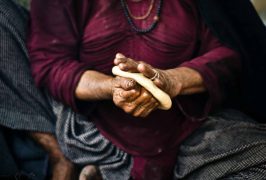November 4, 2022 – Today’s Supreme Court decision missed a significant opportunity to address the mass incarceration of Indigenous women in Canada, and will make future equality rights claims more difficult, says the Women’s Legal Education and Action Fund (LEAF).
In today’s decision in R. v. Sharma, a majority of the Supreme Court of Canada upheld provisions in the Criminal Code which limit access to conditional sentences, a community-based alternative to a jail sentence.
The majority found that Ms. Sharma – a young, low-income, Indigenous single mother sentenced to jail because of the provisions – had not shown that the law created or increased the incarceration rates of Indigenous people in Canada. As a result, they held that the law did not violate her equality rights under s. 15 of the Charter.
“The Court has, on many occasions, acknowledged the reality and deep harm of the mass incarceration of Indigenous women in Canada,” says Pam Hrick, Executive Director & General Counsel of LEAF. “LEAF is deeply disappointed that, given the opportunity to address that reality, the majority decision fails to do so.”
Earlier this year, data showed that Indigenous women now make up over half of the federally incarcerated women in Canada, despite making up less than 5% of Canada’s female population.
With today’s decision, access to conditional sentences remains out of reach for individuals convicted of certain offences. Indigenous women convicted of these offences will be barred from serving their sentences in their communities, losing access to their families and support systems.
The majority decision claims to clarify equality rights law in Canada, but in reality changes settled law and creates a higher burden for equality rights claimants. It effectively requires that claimants, often members of marginalized communities, produce expert and/or statistical evidence – even with recent case law explicitly stating this is not the case.
Parliament must act now to meaningfully fulfill its commitments to racial justice and reconciliation. Passing Bill C-5, An Act to Amend the Criminal Code and the Controlled Drugs and Substances Act, will remove the provisions at issue in this case and allow increased access to conditional sentences.
LEAF also calls on the federal government to repeal all mandatory minimum sentences, or at a minimum fulfill the Truth and Reconciliation Commission of Canada’s Call to Action 32 to allow sentencing judges more freedom in exercising their discretion.
“With this decision, passing Bill C-5 is more important than ever,” says Hrick. “But Parliament can and must do more – like finally fulfilling the Truth and Reconciliation Commission of Canada’s Call to Action 32 to allow more discretion for sentencing judges.”
Alisa Lombard and Aubrey Charette represented LEAF before the Supreme Court.
LEAF is grateful to the members of the case committee who guided, informed, and supported this intervention: Gillian Balfour, Maria Dugas, Mary Eberts, Koren Lightning-Earle, Naiomi Metallic, and Maggie Wente.
For media inquiries, please contact:
Kat Owens
Project Director, LEAF
416-543-3509
[email protected]
Alisa Lombard
Lombard Law
Counsel to LEAF
[email protected]
About the Women’s Legal Education and Action Fund (LEAF)
The Women’s Legal Education and Action Fund (LEAF) is a national not-for-profit that works to advance the equality rights of women, girls, trans, and non-binary people in Canada through litigation, law reform, and public legal education. Since 1985, LEAF has intervened in more than 130 cases that have helped shape the Canadian Charter of Rights and Freedoms. To find out more, visit www.leaf.ca.
